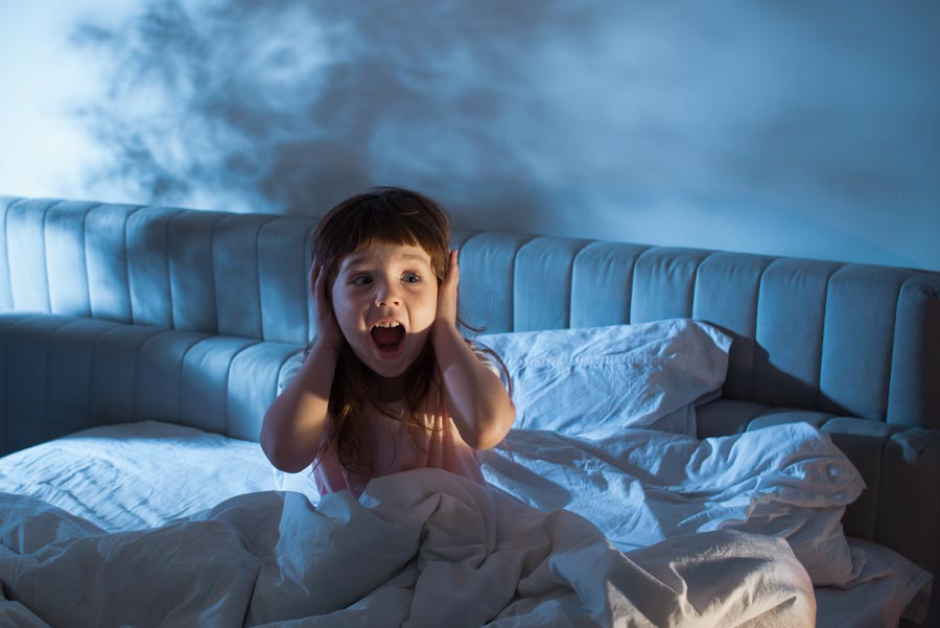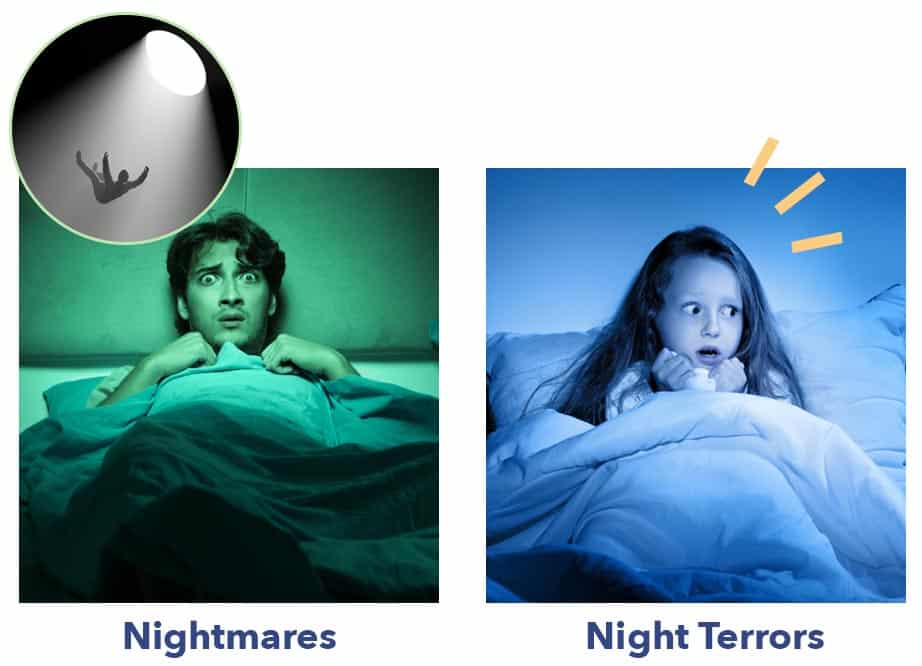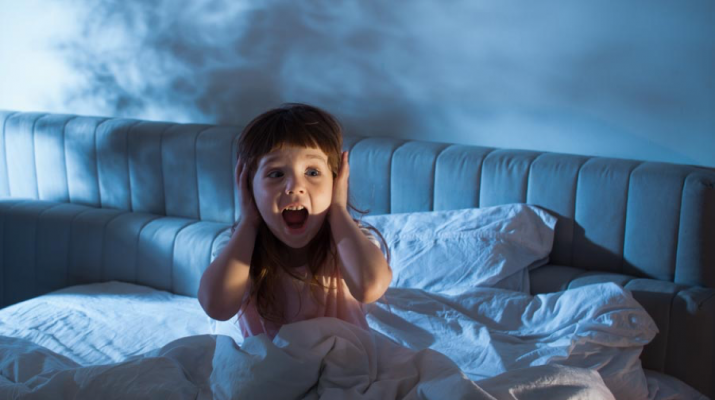What are Sleep Terrors aka Night Terrors?
Sleep terrors often referred to as night terrors are the events of shouting, thrashing, and extreme dread that occur when a person is still asleep. Sleep terrors are generally combined with sleepwalking and are categorized as parasomnia, or unwanted incidences while sleeping, like sleepwalking. A sleep terror episode might last anywhere from a few seconds to a few minutes.
The nocturnal episodes known as “night terrors” are very frightful while one is sleeping. The person may shout and scream while flailing their arms and legs. Although they affect adults as well as children, they affect kids the most frequently. Normally, a normal attack lasts between 30 and 3 minutes, although it can last much longer. Even while night terrors are unpleasant, they are typically not a reason for concern about a person’s health. They are predicted to have an impact on about 40% of kids and fewer adults.

Causes of Night Terrors in Adults
Night terrors are far less common in adults than in children, especially in those who did not have them as children. Adults may be more inclined to get out of bed during a night terror even though the sensation is virtually the same. If a person tries to restrain them, they can lash out in anger. Night terrors in adults may be brought on by neurological issues or alcohol use. If one is an adult, take a look at some of the possible reasons for night terrors.
1. Mental Health Conditions
According to some specialists, adults who have night terrors frequently have mood-related mental health disorders like:
- Anxiety
- Bipolar disorder
- Depression
Trauma or ongoing stress may also be linked to night terrors. Nevertheless, it is still not known if it’s a valid cause, though, because there hasn’t been much research on the connection between night terrors and mental health issues.
2. Breathing Problems
Sleep apnea or other respiratory issues may increase the risk of experiencing night terrors. Researchers discovered in a study that those with disturbing sleep disorders, such as night terrors, were more likely to have respiratory problems as they sleep.
According to scientists, the extra effort required to breathe could result in an awakening that resembles night terrors. Despite the limited research, they might be on to something.
3. Other factors that affect sleep
However, other factors that *might* contribute to these dream-related attacks of night terrors include:
- Sleep deprivation
- Restless leg syndrome
- Fatigue
- Meds like stimulants or antidepressants
- Travel-related sleep disruptions
- Alcohol use
- Fever or illness
Understanding Nightmares v/s Night Terrors

While night terrors are connected with little to no dream imagery, nightmares are unpleasant dreams that might cause dread or distress owing to what occurs during the dream.
People who suffer a nightmare rapidly regain consciousness and may recall the details of the dream, while those who have a night terror do not recall a narrative cause and are unlikely to recall it the following day.
Various sleep stages are also when nightmares and night terrors occur. While nightmares more frequently happen during the rapid eye movement stage of sleep, which is more often connected with dreaming, night terrors typically occur during deep NREM sleep or non-rapid eye movement sleep.
Except for those who have REM sleep behavior disorder, most people do not move around much while having nightmares. Night terrors, on the other hand, are marked by physical actions like writhing and screaming. People who experience night terrors frequently wake up bewildered, unable to talk coherently, and unable to comprehend other people.
Night terrors and nightmares share two characteristics: both are more frequent in children, and when they affect adults, they may be brought on by the same things, including stress.
When to Ask for help for Night Terrors?
Consider speaking to a sleep specialist or psychiatrist if one frequently experiences night terrors (whether the person remembers them or someone else tells informs about them). Particularly in adults, recurrent night terrors may be a sign of an underlying medical or psychiatric condition.
How to Treat People with Night Terrors?
1. People Simply Need Comfort

In most cases, children with night terrors merely need to be reassured and comforted during the night. Parents and other adults who are responsible for children may be more distressed by the experience than their young charges because the majority of kids do not remember their night terrors in the morning. Then, learning more about night terrors might help calm their fears.
2. Try not to Wake up the Person

Never try to wake someone having a night terror because doing so may make them feel worse. Similar to waking up a sleepwalker, it can be quite challenging to wake up someone experiencing night terrors. As an alternative, make sure their bedroom is secure and that they can’t hurt themselves if they jump out of bed.
3. Avoid a few Things if Possible that Trigger Night Terrors

The first thing to do if night terror episodes are troubling a person is to remove the potential triggers. Since both coffee and sleep deprivation contribute to the disorder, a treatment strategy may include cutting out caffeine from the diet and adopting healthy sleeping habits. Families may wish to take additional measures to promote restful sleep, such as lowering background noise, preventing pets from entering the bedroom, and limiting fluid consumption in the evening to prevent night-time bladder awakenings. Therapy and coping mechanisms that address the person’s stressors may also aid in improving sleep.
4. Try Medication
If necessary, medications are available to cure night terrors in adults, while it is typically not recommended for kids. By implementing scheduled awakenings, in which the sleeper is awakened about 30 minutes before the night terror episode begins, families may be able to lessen frequent episodes of night terrors.
When is the Right Time to Talk about Night Terrors to the Doctor?
Even though night terrors usually do not cause long-term harm, they can nevertheless be extremely unpleasant and may prevent the person from getting enough rest. As well as increasing adolescent headaches, exhaustion, daytime sleepiness, anxiety, and despair, night terrors can cause some people to hurt themselves or others. It might be time to consult the doctor if the night terrors are occurring the most and preventing you from living normally.
Usually, doctors can identify night terrors from descriptions provided by family members. To make sure the episodes are night terrors instead of seizures or other medical issues, a few doctors may request additional tests. They might also suggest therapies for other conditions that might be causing the night terrors.
The Bottom Line
Although the exact cause of night terrors is unknown, underlying stress, anxiety, or other mental health issues may be the possible reasons. Speaking to a doctor, a therapist, or a sleep expert may help one find the support needed if he believes that night terrors are having a detrimental influence on life or have the potential to hurt self or a loved one.

